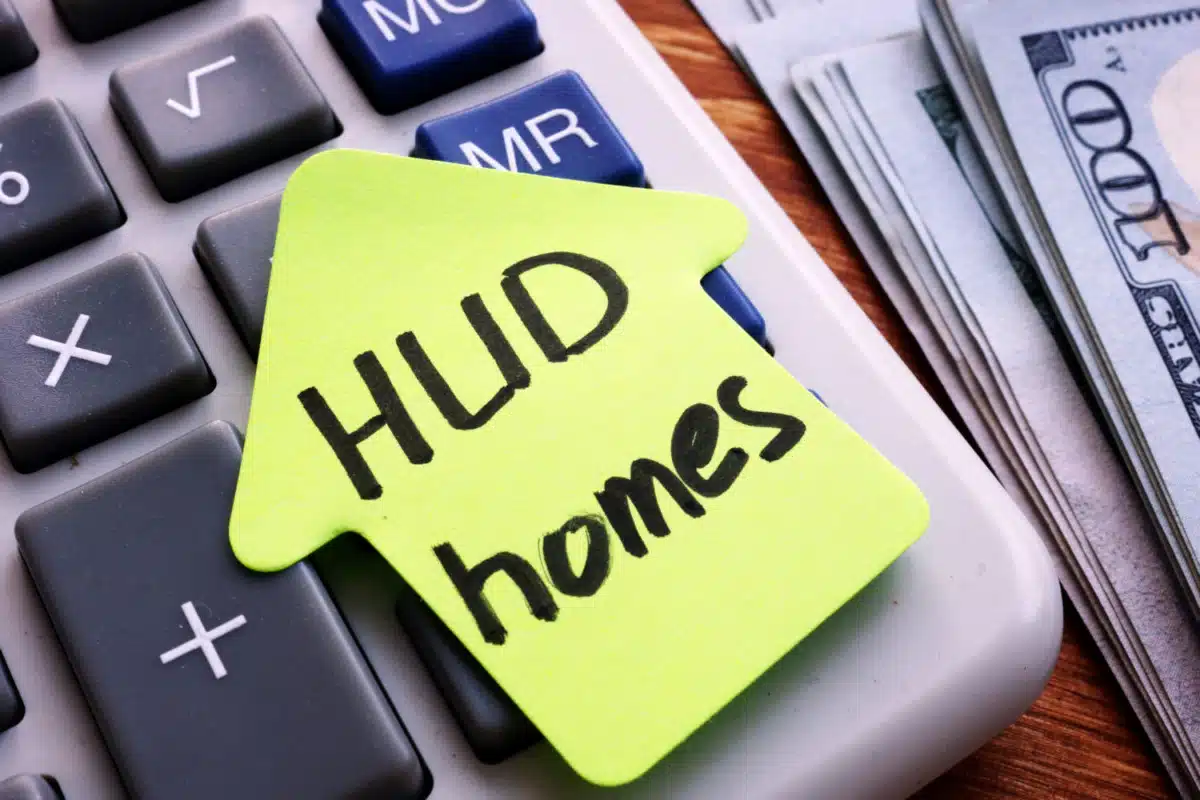If you’re a home buyer looking for a bargain (what buyer isn’t?) then one option to consider is a HUD home. This is a home owned by the U.S. Department of Housing and Urban Development. When a buyer who took out an FHA loan forecloses, the property goes to HUD. But HUD doesn’t want to own the property any longer than they have to which is why they try to unload it through an auction. This can be a prime moment for a bargain but a purchase like this has to be approached with some caution. Not all HUD homes are good deals which is why you’ll need to do your homework before jumping in.
What is a HUD Home?
When a homeowner defaults on an FHA loan, HUD pays off the loan and takes possession of the property. HUD needs to make back that money which is why their first priority is to unload any property that falls into their lap as soon as possible. As you read up on HUD homes and foreclosures, you’ll come across phrases like REO, or real estate owned properties. These are simply homes that have been foreclosed upon and are now the property of a bank, lender or a government agency such as HUD.
One thing to avoid is thinking that HUD homes and foreclosures are the same things. They might be similar but there are differences. A foreclosed home is any home that’s owned by a bank, lender or government agency. A HUD home refers to any home that is specifically owned by HUD. Beyond this definition, they also have different buying processes.
How Do You Buy a HUD Home?
You won’t find HUD homes on conventional listing websites. Instead, you have to use hudhomestore.com. The site lists all HUD real estate owned properties by state or zip code. They usually come with photos, a listing price and a deadline by which you must submit an offer. However, you can’t actually bid on one yourself. Only registered real estate brokers can place bids on the HUD Home Store on your behalf. You can still look through listings, but you’ll need to contact a registered Exclusive Buyer Agent to make any bids.
The process goes like this. Once a listings deadline is reached, HUD will review all bids and determine which is the most acceptable. All offers are considered with the highest one usually winning. If no bids are deemed acceptable then the deadline is extended until an acceptable offer is found. Additionally, they might also reduce the asking price.
Benefits of HUD Homes
Since HUD doesn’t want to own these homes any longer than they have to they’ll usually be priced below market rate to attract buyers. Government agencies may also offer incentives to sweeten the deal for buyers. For instance, the HUD Good Neighbor Program provides HUD homes in revitalized areas at 50% discount to community workers (police officers, teachers, firefighters, and EMS personnel) if you plan to live in the community for at least 36 months. Other benefits of HUD homes include low down payment requirements, FHA financing, and sales allowances that can be used to pay for closing costs or make home repairs.
Risks of HUD Homes
As with every bargain, there’s a catch and the biggest one with buying a HUD home is that they’re sold “as-is.” This means what you see is what you get and some of them might not be in the best shape. If there are any problems such as a leaky roof or faulty electrical wiring, then it’s on you to fix them. Fortunately, you can learn ahead of time what a properties condition is by having a home inspection done. That way you can factor any repairs that need to be made into your bid. Another disadvantage is that HUD homes are rarely found in the best neighborhoods. That’s because homes in good neighborhoods are usually snapped up long before they make it into the HUD inventory.
Final Thoughts
HUD homes can be a great bargain, but they have to be approached with some caution and lowered expectations. Most of them won’t be in the best of neighborhoods. There’s also a chance you’ll need to do some repairs before they’re livable. However, just because a home is being sold in an as-is condition doesn’t necessarily mean it’s in the fixer-upper category. Once HUD takes over a home, they assign a field service manager to keep an eye on it. HUD wants to get their money back so they’re not going to let it fall into a complete state of ruin.
If a HUD home sounds like it could work for you then talk with a local Exclusive Buyer Agent. They can find homes that match your search criteria, walk you through the options and advise you on what bid to make.

